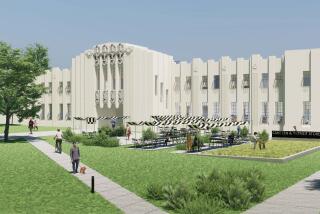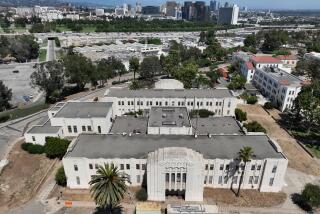VA offers quick HIV tests for vets
The VA Greater Los Angeles Healthcare System began offering 20-minute HIV tests at its downtown ambulatory care center Tuesday -- part of a campaign to encourage more veterans to get tested and treated for the virus.
âHIV testing is the gateway to life-saving therapy,â said Dr. Earl Tso, a primary care physician who is leading the downtown centerâs outreach effort.
In the past, veterans wanting to be tested for HIV had to have blood drawn and sent to a laboratory for analysis. Studies have found that as many as a quarter to a third of patients failed to return for results after such blood tests.
With the rapid screening, a nurse swabs a patientâs gums and cheeks, then inserts the swab into a chemical solution that detects HIV antibodies.
As the nationâs largest healthcare provider, the U.S. Department of Veterans Affairs system treats more HIV-positive patients than any other provider in the country. Veterans are slightly more likely than the general population to contract HIV, according to Dr. Matthew Goetz, chief of infectious diseases at the VAâs West Los Angeles Healthcare Center.
He said the local VA system chose the downtown center, on Temple Street near Alameda Street, to launch the campaign because it is close to skid row and has a large population of homeless veterans.
The VA estimates that a third of homeless adults nationwide are veterans, and 70% of them have alcohol or drug problems. Homelessness and substance abuse are associated with behaviors such as sharing needles and having unprotected sex that increase the risk of contracting HIV.
The outreach effort grew out of an ongoing nationwide study of HIV-positive veterans, which found that half of those newly diagnosed learned of their infection only after it had advanced enough to land them in an emergency room, Goetz said.
Initially praised as a powerful weapon against AIDS, rapid tests have been slower than expected to catch on since their introduction in 2003.
The L.A. Gay & Lesbian Center was the first to offer the rapid test in Los Angeles but discontinued it for part of 2005 over concern that it yielded too many false positives. The clinic reinstituted the test after clinical studies showed its accuracy.
--
More to Read
Sign up for Essential California
The most important California stories and recommendations in your inbox every morning.
You may occasionally receive promotional content from the Los Angeles Times.










